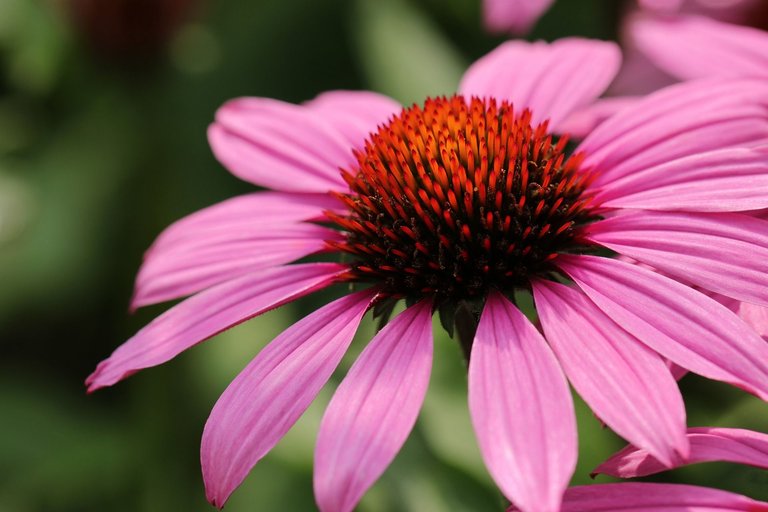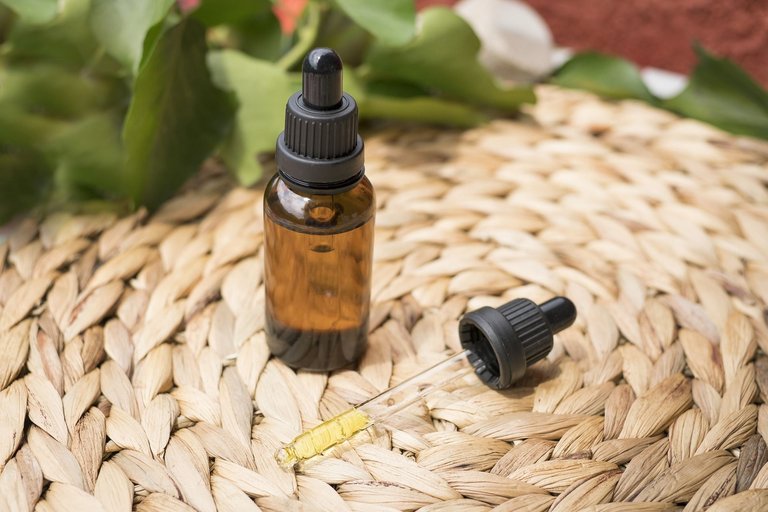Good morning everyone, today I would like to share with you my personal experience in using echinacea as a phytotherapeutic remedy.

Foto di Marjon Besteman da Pixabay
Description: perennial herbaceous plant.
Minimum cultivation temperature: -5 °C.
Balsamic period: July.
Toxicity: low, may cause gastrointestinal disorders.
Do not take Echinacea angustifolia supplements during pregnancy and breastfeeding, always consult a doctor before taking phytotherapeutic preparations based on this plant.
Beneficial properties: diuretic, immunostimulant and healing.
Confirmed activities: melliferous plant.
Active ingredients: echinacoside, chicoric acid and flavonoids.
PREPARATIONS
Infusion: prepared with 1.5 g of flowers and 1.5 g of dried leaves per 100 ml of water for the treatment of cystitis.
Acetolito: prepared with 5 g of flowers and 5 g of dried rhizome, macerated for 21 days in 100 ml of solution (45 ml of 96° alcohol, 30 ml of water and 25 ml of vinegar). The filtrate can be stored for 3 years, 30 drops per day for the immunostimulant function.
Officinal tincture: prepared with 5 g of flowers and 5 g of dried rhizome, macerated for 21 days in 100 ml of 62° hydroalcoholic solution. The filtrate can be stored for 3 years, for the healing function (topical use).
NOTES
Clinical studies have shown that taking echinacea increases the production of interferons and cytokinins, inhibits bacterial hyaluronidase and has antiviral activity.
Buongiorno a tutti, oggi vorrei condividere con voi la mia esperienza personale nell'utilizzo della echinacea come rimedio fitoterapico.

Foto di Erin Stone da Pixabay
Descrizione: erbacea perenne.
Temperatura minima di coltivazione: -5 °C.
Periodo balsamico: luglio.
Tossicità: bassa, può causare disturbi gastrointestinali.
Non assumere integratori di Echinacea angustifolia in gravidanza e allattamento, consultare sempre un medico prima di assumere preparati fitoterapici a base di questa pianta.
Proprietà benefiche: diuretico, immunostimolante e cicatrizzante.
Attività confermate: pianta mellifera.
Principi attivi: echinacoside, acido cicorico e flavonoidi.
PREPARAZIONI
Infuso: preparato con 1,5 g di fiori e 1,5 g di foglie essiccate per 100 ml di acqua per il trattamento della cistite.
Acetolito: preparato con 5 g di fiori e 5 g di rizoma essiccato, fatti macerare per 21 giorni in 100 ml di soluzione (45 ml di alcol 96°, 30 ml di acqua e 25 ml di aceto). La conservazione del filtrato è pari a 3 anni, 30 gocce al giorno per la funzione immunostimolante.
Tintura officinale: preparata con 5 g di fiori e 5 g di rizoma essiccato, fatti macerare per 21 giorni in 100 ml di soluzione idroalcolica 62°. La conservazione del filtrato è pari a 3 anni, per la funzione cicatrizzante (uso topico).
NOTE
Studi clinici hanno dimostrato che l‘assunzione di echinacea aumenta la produzione di interferoni e citochinine, inibisce la ialuronidasi batterica ed esplica attività antivirale.
Sources - Fonti :
https://erbeofficinali.org/dati/q_scheda_res.php?nv_erba=ECHINACEA
https://www.boiron.it/chi-siamo/all-origine-dei-nostri-prodotti/echinacea-angustifolia-la-pianta-officinale-le-difese-dell-organismo
The red flower looks very beautiful, my friend.
!discovery 30
This post was shared and voted inside the discord by the curators team of discovery-it
Join our Community and follow our Curation Trail
Discovery-it is also a Witness, vote for us here
Delegate to us for passive income. Check our 80% fee-back Program